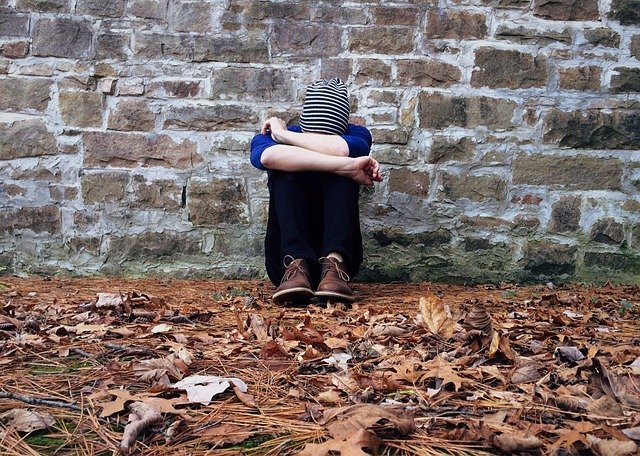
What is Mental health?
Mental health is a person’s condition with regard to their social, psychological, and emotional wellbeing. Some people call mental health as ‘emotional health’ or ‘wellbeing’ and it’s just as important as good physical health. Mental health is important to every human being. It affects how we think, feel, and act. It also helps to decide how we handle stress and make choices. Mental health is important at every stage of life, from childhood and adolescence through adulthood. Over the course of your life, if you experience mental health problems, you’re thinking, mood, and behavior could be affected. There are definitely all kinds of help available for mental health problems as it is common.
Why is Mental health important?
Mental health is very important as it plays an imperative part in one’s life. It majorly impacts your thoughts, behaviors, and emotions. If a person is healthy mentally and emotionally, they can be more productive and can be more effective in their works. It helps to adapt to changes and coping up with adversity and keep your relationship status healthy. We can improve our Mental health step by step every day. Start with small things like exercising, eating balanced and healthy meals, opening up with people, taking breaks when needed, showing gratitude. But above all comes good sleep at night.
Does Mental health affect Physical health?
Yes, Mental health definitely affects our physical health. It’s often misunderstood that there is no link between mental and physical health. But the actual truth is they go hand in hand. In fact, the World Health Organization defines health as a state of complete physical, mental, and social well-being. Poor Mental health can affect your ability to make healthy decisions and fight off chronic diseases. Poor physical health can lead to an increased risk of developing Mental health problems. There are some serious health complications if you are neglecting your Mental health like Heart diseases, high blood pressure, weakened immune system, asthma, obesity, gastronomical problems, premature health. Depression alone affects the brain.
Mental health disorders
-
Anxiety disorders
Anxiety disorders are different, though. They are a group of mental illnesses, and the distress they cause can keep you carrying on with your life normally. However, some people experience anxiety attacks for no apparent reason. Anxiety disorders are the most common of mental disorders and affect nearly 30 percent of adults at some point in their lives. But anxiety disorders are treatable and a number of effective treatments are available.
-
Panic disorders
This feeling you usually get when you feel overwhelmed about everyday social situations. You fixate about others judging you or on being embarrassed or ridiculed. A panic attack usually happens because of heightened anxiety. It can lead to rapid heartbeat, rapid breathing, sweating, shaking, and other symptoms. A panic attack and panic disorder can affect anyone of any ethnic background, but it is more common among women than men.
-
Obsessive-Compulsive Disorder (OCD)
Anyone who is constantly engaged in excessive, unreasonable, and repetitive behavior such as cleaning, hand-washing, or rearranging? If you do so, that person is most likely suffering from Obsessive-Compulsive Disorder (OCD). In other words, they experience constant, stressful thoughts and a powerful urge to perform repetitive acts.
-
Mood disorders
People with mood disorder conditions have significant changes in mood, generally involving either mania, which is a period of high energy and elation, or depression. The person as major depression, Bipolar disorder, and Seasonal affective disorder.
-
Post-traumatic stress disorder (PTSD)
PTSD occurs when a person witnesses a deep stressful or traumatic event. The person while experiencing that moment thinks that their life or other people’s lives are in danger. Hey may feel afraid or that they have no control over what is happening. These sensations of trauma and fear may then contribute to PTSD.
How to boost up our Mental health?
Usually, many of us would be diagnosed with mental disorders. Yet, despite how common Mental health problems are, many of us make no effort to improve our situation. Anyone can suffer from Mental health problems and over a lifetime most of us will. For disturbed mental health few start self-medicating with alcohol, drugs, or self-destructive behaviors. Some people bottle up their problems that no others won’t notice. They hope that their situation will eventually improve on its own, or they simply give-up telling ourselves that is “just the way we are.”
Here are some tips that you can improve your Mental health.
1. Value yourself
First and the main important thing is that you must start loving yourself, treat yourself with kindness, respect, and avoid self-criticism. Try to keep yourself engaged so that your mind doesn’t distract. Solve a crossword puzzle, take some classes for kids, spend quality time with family and friends, etc.
2. Eat well
Your body needs a mix of nutrients in order to stay healthy and to function well. A diet that’s good for your physical health is also good for your mental health too. Eat at least three meals a day and drink plenty of water. Try to limit high-caffeine or sugary drinks you have and avoid too much alcohol.
3. Surround yourself with good people
This is one of the best ways to find happiness. Spend time around the people with whom you find comfortable and secure. A great way to connect with others is to share laughter or spend laughter or spend time having fun with them. We all know life can be hard. We all have our struggles. But isn’t it refreshing to spend time with people who don’t waste time and energy complaining? It’s worth the time it may take consciously surrounding yourself with people who can create goodness for themselves, and those around them.
4. Set realistic goals
One must decide what they have to achieve academically, professionally, and personally. They must write down the steps needed to realize the goals. Aim high but be realistic and don’t over-schedule. They must enjoy a tremendous sense of accomplishment and self-worth as progress towards the goal.
5. Do something you’re good at
Always when you feel bored do something that you love to do and some activities, in which you can lose yourself. This is one of the best stress busters. It can be good to have an interest where you are not seen as someone’s mum, dad, or partner. You’re just YOU.
We hope this article helps you to know what is Mental health and how to keep your mental health good and better. If you feel this article is useful do drop us your review in the comment box and if you know any more useful tips, do share it with us in the comment box.
Also, do read this article : How to save energy in your body?







